It’s complicated: EU’s shifting relationship with Beijing
It has been a slow awakening for Europe, but as Anthony Albanese heads to China for a three-day visit, the continent finally is transforming its view of Beijing from a cuddly trading partner to a strategic and economic rival.
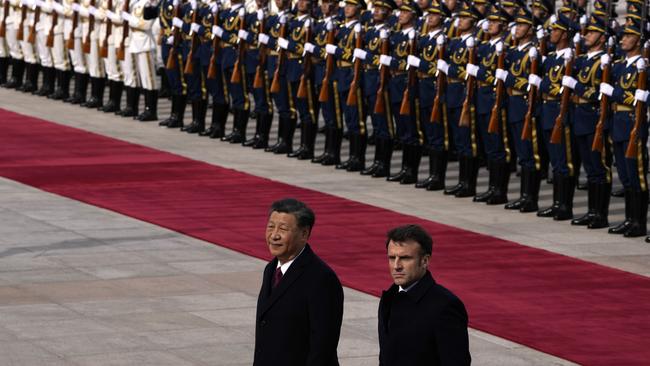
There is still a journey ahead before Europe is as forthright as Australia and the US have been in calling out Beijing for flouting international law, cosying up to Russia or its regional bullyboy behaviour. But compared with just a year ago, the EU and key European powers have hardened their rhetoric on China’s behaviour in a way that once would have seemed unthinkable.
The irony is that this is occurring just when Australia’s ties with China are slowly stabilising after an often bitter five-year rift during which Beijing slapped – and now slowly is lifting – $20bn worth of trade sanctions on Australia.
Albanese’s visit to China, the first by a prime minister since Malcolm Turnbull in 2016, is the next step forward in this tentative rapprochement.
But the change in tone from Europe towards China is now palpable, even if it may seem belated in Canberra and Washington.
Take Europe’s powerhouse Germany, for example. The country that traditionally has seen China almost exclusively through the lens of its flourishing €300bn ($499bn) two-way trade relationship has adopted a broader and more critical assessment of Beijing.
A series of issues – including China’s refusal to criticise Russia’s invasion of Ukraine, its so-called “no limits” partnership with Moscow and its aggressive stance in the Indo-Pacific and a poor human rights record – led Berlin to adopt a new China strategy in July.
The German government tied itself into knots creating the new strategy, with Chancellor Olaf Scholz backing a more trade-friendly policy while Foreign Minister Annalena Baerbock advocated a more hawkish line with a greater emphasis on human rights and China’s strategic behaviour. The internal spat was a microcosm of the broader debate on China in Europe – to what extent should European nations weigh strong trade ties against clear evidence that Beijing was increasingly flouting international norms and cosying up to Russia?
Baerbock won the internal tussle and the new policy states bluntly that Germany “is observing with concern how China is endeavouring to influence the international order in line with the interests of its single-party system and thus to relativise the foundations of the rules-based international order, such as the status of human rights”.
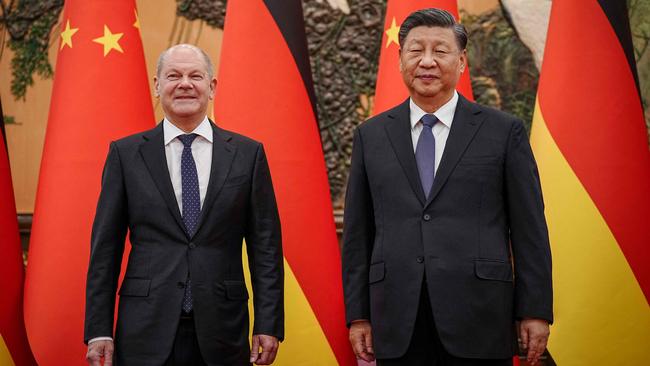
Scholz said the tougher new strategy was needed to “react to a China that has changed and become more assertive. Our aim is not to decouple (from Beijing). But we want to reduce critical dependencies in future,” he said.
In a recent address to the Lowy Institute in Sydney, Baerbock even described China as a competitor and strategic rival “when it comes to the very fundamentals of how we live together in this world”.
European nations are evolving at different speeds in their response to the rise of China but this year the EU has notably sharpened its rhetoric towards Beijing.
Since 2019, the EU has referred to China as a “systemic rival” and “economic competitor”. But European Commission president Ursula von der Leyen has employed tougher words on China recently, saying the 27-nation body needs to be bolder on China in calling out Beijing’s “escalatory actions”.
She has bluntly criticised China’s “no limits” partnership with Russia, its human rights record, its bullying of small countries and its undermining of free trade, saying these issues have made EU-China relations “more distant and more difficult”.
“These escalatory actions point to a China that is becoming more repressive at home and more assertive abroad,” von der Leyen says. “China has now turned the page on the era of ‘reform and opening’ and is moving into a new era of security and control.”
Von der Leyen says the EU needs to “de-risk” its relationship with China but not “decouple” and that it wants to maintain a strong trade relationship.
For the EU, the term “de-risking” means the establishment of restrictions on trade in highly sensitive technologies where military use cannot be excluded or where there are human rights implications. The EU is trying to cut back the role of Chinese companies in Europe’s digital infrastructure and has warned its members against becoming too reliant economically on trade relations with Beijing.
The union has recently adopted an anti-coercion instrument to allow it to retaliate against countries that put undue economic pressure on EU members to change their policies.
The move is aimed largely at China after Beijing imposed trade restrictions on Lithuania after that country said it was improving trade ties with Taiwan. In 2021, Lithuania became the first European country to have a Taiwanese representative office that went under the name Taiwan. In retaliation China withdrew its ambassador and imposed a customs block on Lithuanian imports into China.
“For years the West said economic co-operation would persuade dictators to support (a) rules-based international order. But all we did was feed their economies while letting them break all the rules,” Lithuania’s Foreign Minister Gabrielius Landsbergis says.
“China is betting that we will repeat this mistake. It’s time to try something else.”
The European Commission has also angered Beijing by calling on more EU nations to ban Chinese telcos Huawei and ZTE on security grounds. In September, von der Leyen infuriated China by launching an anti-subsidy investigation against Chinese imports to stem a flood of Chinese electric cars coming into EU markets. The move came less than a week after her meeting with Chinese Premier Li Qiang in New Delhi and is the sort of action experts say would never have been taken against Beijing when the relationship was warmer.
China responded angrily, saying the investigation was “a naked protectionist act that will seriously disrupt and distort the global automotive industry and supply chain, including the EU, and will have a negative impact on China-EU economic and trade relations”.
The changed tone in Europe has unsettled Beijing, with Chinese Foreign Minister Wang Yi telling EU foreign affairs chief Josep Borrell the EU should “clarify” its vision of the relationship with China.
“The EU side should … clarify the positioning of the strategic partnership between the two sides, and promote China-EU relations to move forward,” Wang told Borrell on the sidelines of the Association of Southeast Asian Nations summit in Jakarta in September.
In June Li visited Germany, where he warned Berlin against “using de-risking in name to carry out decoupling”.
I recently returned from a four-nation visit to Europe speaking with politicians, diplomats and think tanks about the evolving views on China and, despite the EU’s common policy position, it’s clear that each nation sees China differently.
The Baltic nations, the Czech Republic and Poland have toughened their policies towards China on geostrategic grounds because of their anger over Beijing’s refusal to criticise Vladimir Putin over the Ukraine war as well as its “no limits” partnership with Moscow.
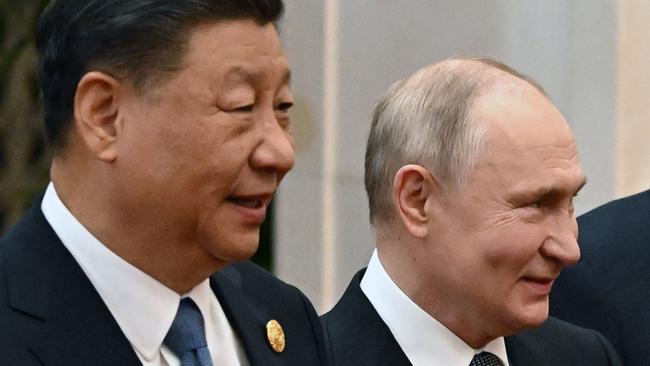
“The stance China has taken with Russia has had an impact on the standing of China in Poland,” Polish Under Secretary of State Wojciech Gerwel – who is effectively the country’s deputy foreign minister – told me in an interview in Warsaw.
But some other EU members, including Italy, Greece, Hungary and Spain, still prioritise their trade relations over verbal criticism of China’s behaviour even though each has signed up to the more robust EU policy towards China.
France also has been out-of-step with the EU’s tougher approach. President Emmanuel Macron was heavily criticised in Europe and the US when he suggested in April that the security of Taiwan was not Europe’s problem and Europe must resist becoming America’s “vassals”.
“The question we Europeans are asking ourselves is the following … is it in our interests to accelerate when it comes to Taiwan?” Macron said.
“No. The worst thing would be to think that we Europeans must become followers on this topic and take our cue from the US agenda and Chinese over-reaction.”
Within days the Elysee Palace knew the President had overreached and it tried to clarify his comments to emphasise the strength of the France-US alliance.
But Macron’s comments, however clumsy, show that in parts of Europe there is still a lingering reluctance to call China out for its behaviour. In a series of recent interviews with senior French diplomats in Paris, there seemed little appetite to step up France’s criticism of Beijing even as they distanced themselves slightly from Macron’s wording.
But China was so pleased with Macron’s comments that Vice-Premier He Lifeng has told France he hopes that Paris will play a role in trying to “stabilise the tone” of EU-China relations.
In Britain the Conservative government of Rishi Sunak has come under pressure to take a tougher stance on China following a damning parliamentary report detailing the extent of Chinese interference across British society.
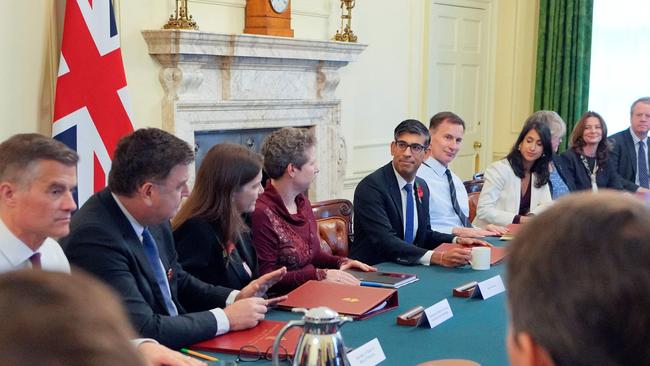
The July report by the Intelligence and Security Committee of Parliament – which oversees the work of Britain’s intelligence community – warned that “China’s size, ambition and capability have enabled it to successfully penetrate every sector of the UK’s economy”.
It criticised the government’s response to the threat as “completely inadequate”.
In response, the British Prime Minister described China as “an epoch-defining challenge to the international order” but added that he still wanted an open and constructive relationship with Beijing.
Although each European nation is moving at its own speed, they are finding it increasingly difficult to stick to the long-held European habit of keeping silent on China’s poor behaviour because of a lucrative trade relationship.
Now, for the first time, the scales are shifting as more European nations begin to view Xi Jinping’s China without rose-coloured glasses.



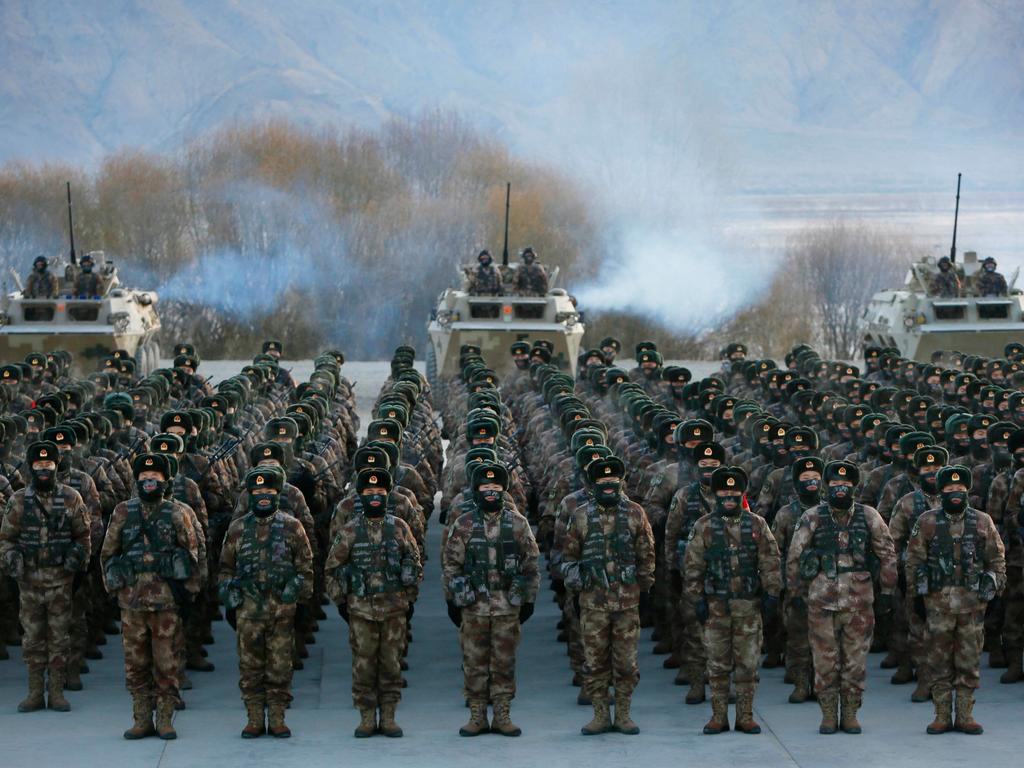
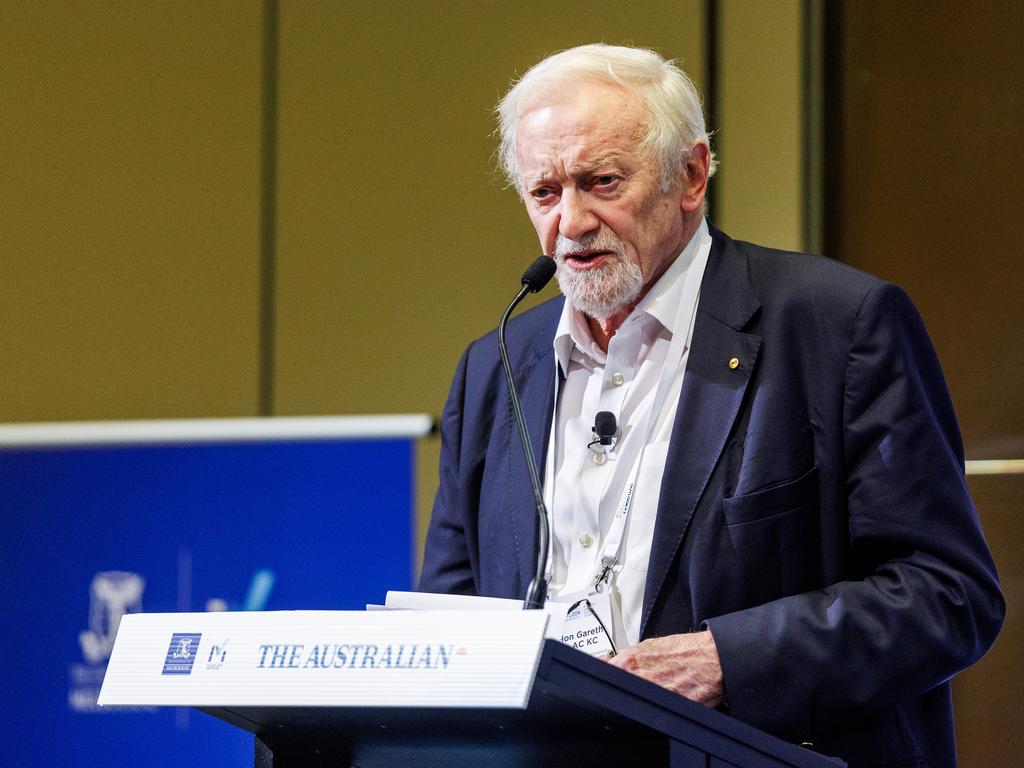



It has been a slow awakening for Europe, but as Anthony Albanese lands in China on Saturday for a three-day visit, the continent finally is transforming its view of Beijing from a cuddly trading partner to a strategic and economic rival that needs to be treated with great caution.